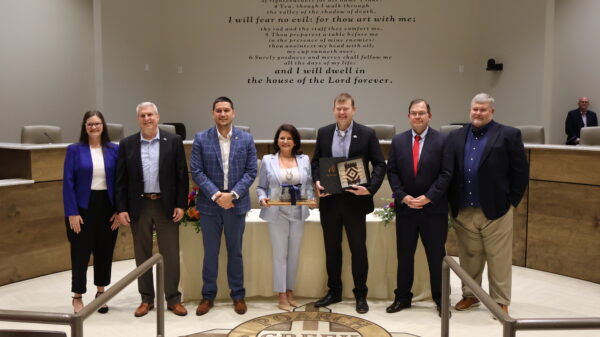A commission of Alabama lawmakers adopted its report and recommendations for the legislature, emphasizing a blended K-12 school funding model that combines the current Foundation Program, created 30 years ago, with additional need-based funding for students.
The report will serve as a roadmap for the legislature to decide how to fund K-12 schools. During the legislative process, more details for the plan will be defined.
The recommendation, which emerged after six meetings, reflects the commission’s finding that the state’s existing funding formula must be revamped to better address challenges and support students.
The commission, composed of budget committee members from both chambers, presented the pros and cons of its three options during Thursday’s meeting. The options were to leave the current funding model as is, completely overhaul it with a solely student-based model or take the hybrid approach the commission has been leaning toward.
The hybrid approach would be phased in over a few years to ensure that the state’s finances allow it, but the report reads as ideally five years or less.
Senate Education Budget Chair Arthur Orr, R-Decatur, explained that this process should be gradual for the overall benefit of the public schools, but it would be best to move as quickly as allowed by available funds.
“The optimal is we do it quickly. The practical, or the reality, is we go as quickly as we’re financially able to go. We don’t want to overcommit where we have a situation of we shoot high and then we’re not able to fulfill our commitments,” said Orr.
Lawmakers suggested that legislation could include restrictions to ensure funds benefit targeted populations and stressed the importance of accountability to ensure these funds are used effectively. The adopted report also recommends transparency measures within the legislation to monitor student growth.
“That would be requiring more reporting from the systems. If we give you extra money over time- and it’s gonna take a while- but if we give you extra money, what type of results are we getting for the extra investment we’re giving our schools that, today, have particular needs that they need to address,” said Orr.
Sen. Rodger Smitherman, D-Birmingham, suggested an initial boost for failing schools to help them during the transition.
“We’ve got to do a one-time allocation to all 200 failing schools we have in this state so that we can get back up to that point,” Smitherman said. “I know that we have the capability to provide that.”















































